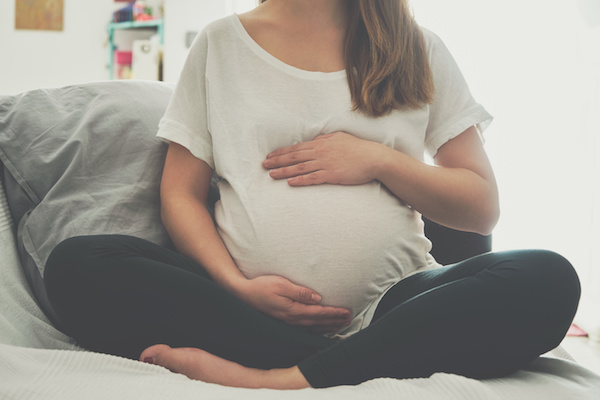First Comes Baby. Then Comes Urinary Incontinence? | Tennessee Valley Urology Center

Pregnancy is a wonderful thing! You experience the pregnancy glow, you feel your baby’s kicks and you start to understand what everyone was talking about when they said maternal instinct.
However, with all of the amazing things that come along with pregnancy, you sometimes let the bad in with the good, which includes urinary incontinence. In fact, as many as four in 10 women experience urinary incontinence during and after pregnancy.
Our team at Tennessee Valley Urology Center is here to help you enjoy your pregnancy without having to worry about dealing with urinary incontinence, too. Read on as we take a look at the issue.
What Causes Urinary Incontinence During & After Pregnancy?
As with most changes in pregnancy, hormonal changes tend to be the cause of bladder issues. Combine that with the added pressure on a woman’s bladder, and stress incontinence occurs.
Stress incontinence is defined as the loss of bladder control during a physical activity. It can be anything from a few drops to an involuntarily large flow when performing activities like:
- Laughing
- Sneezing
- Coughing
- Jumping
- Exercising
- Heavy lifting
Can Urinary Incontinence Be Prevented?
Fortunately, there are some things you can do in order to try and prevent urinary incontinence.
For starters, drinking plenty of fluids can help prevent incontinence, as dehydration can cause bladder irritation. Therefore, try to sip on water throughout the day, as well as drink more fluids when it is hotter outside or you are exercising.
Eating a high-fiber diet can also help to prevent urinary incontinence. When you add more fiber into your diet, you are helping to keep things moving and therefore, avoid constipation, which can also irritate the bladder.
Good sources of fiber include:
- Lentils
- Fruits and vegetables
- Brown rice
- Whole-wheat pasta
Finally, you also want to make sure you are getting at least 30 minutes a day of moderate to vigorous exercise. While exercise can help to ensure the health of you and your baby, it can also help to reduce pressure on your pelvic floor by keeping you at a healthy weight. It also has the added benefit of helping you recover more quickly after giving birth.
Did your pregnancy lead to urinary incontinence? Our team at Tennessee Valley Urology Center is here to help! Give us a call today.
